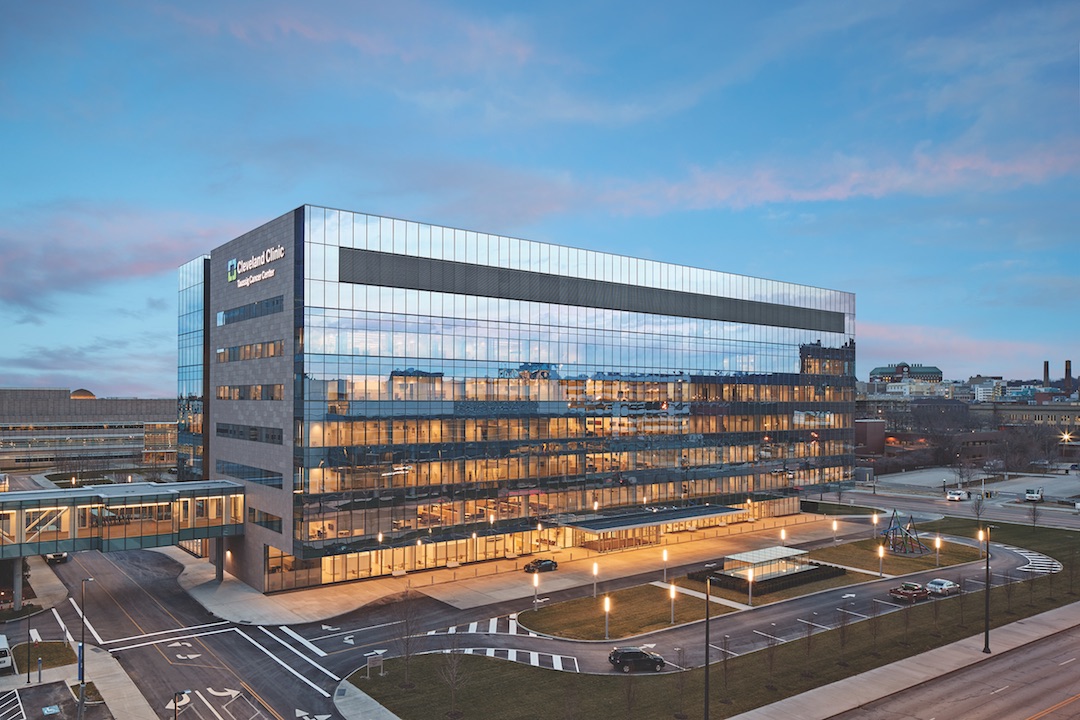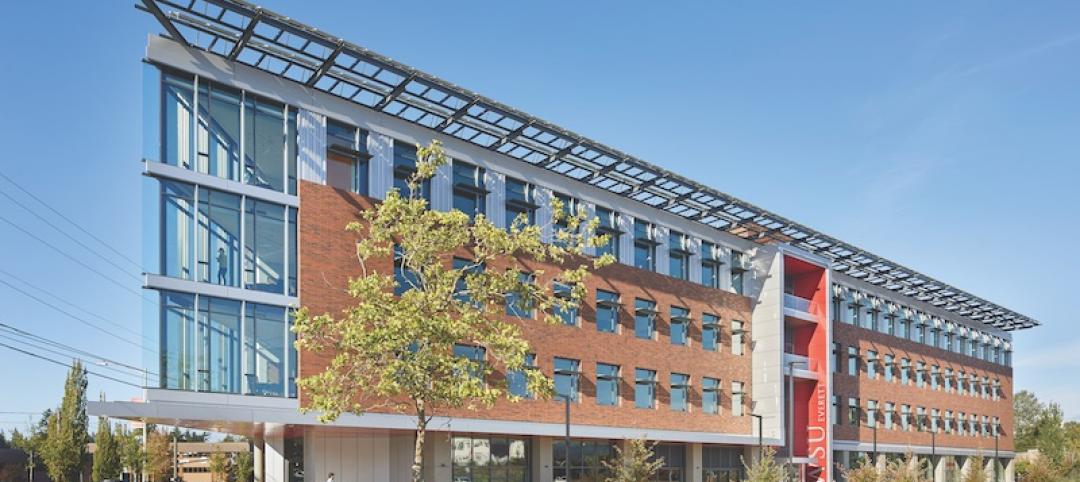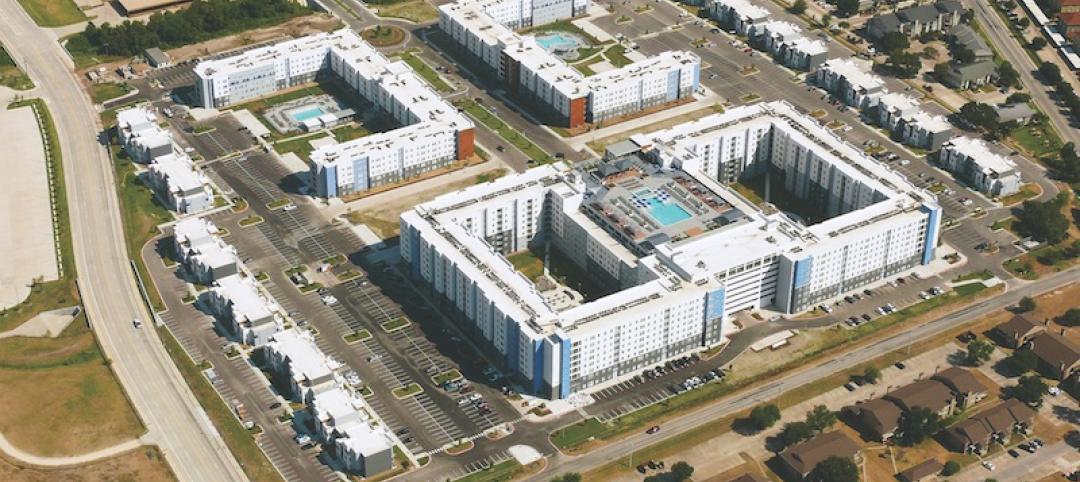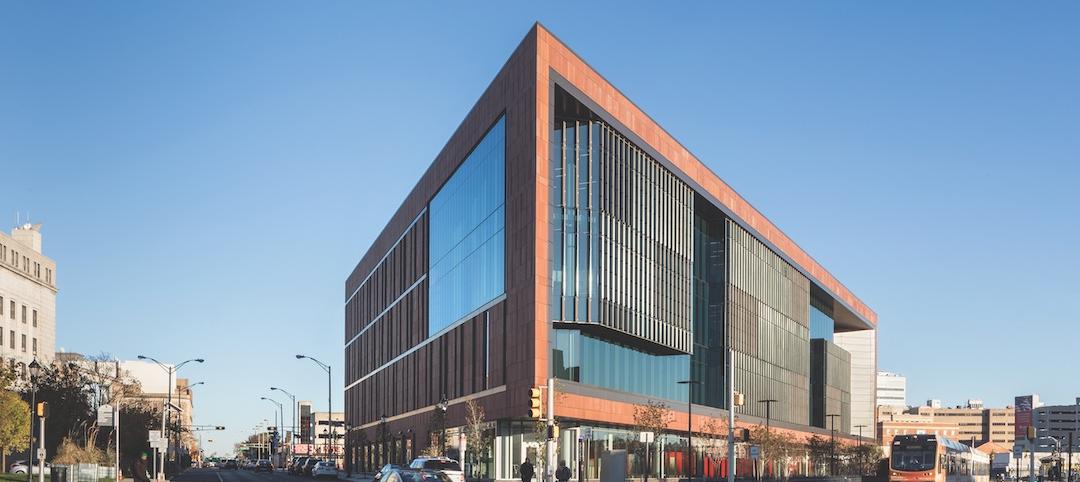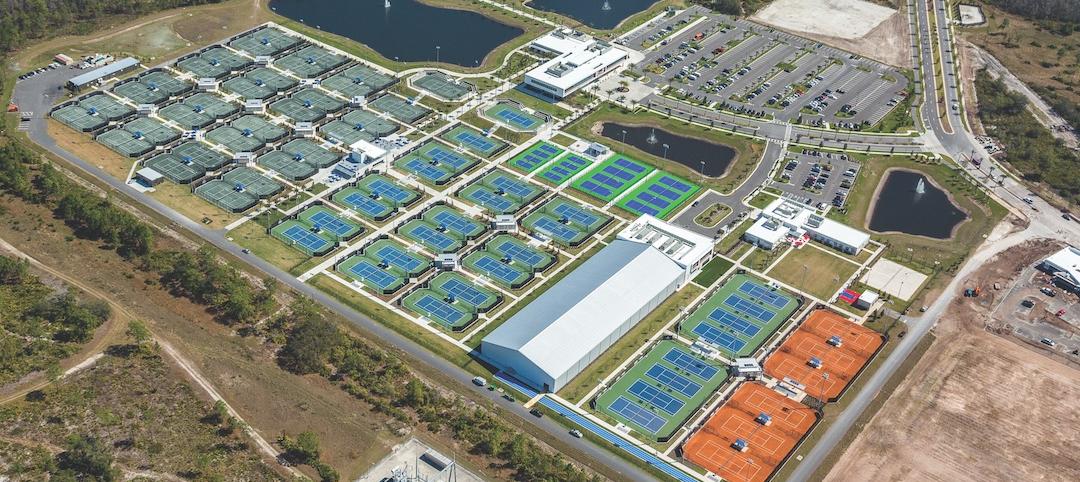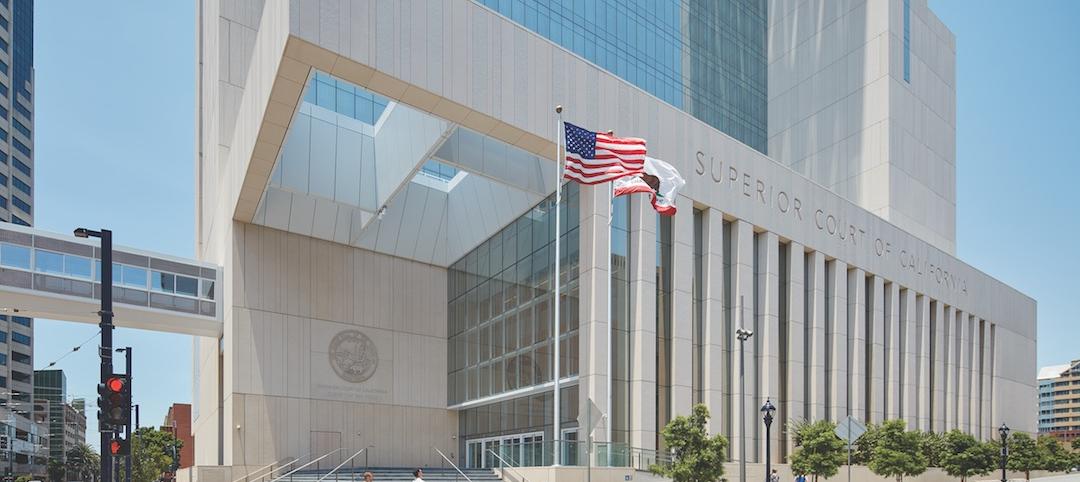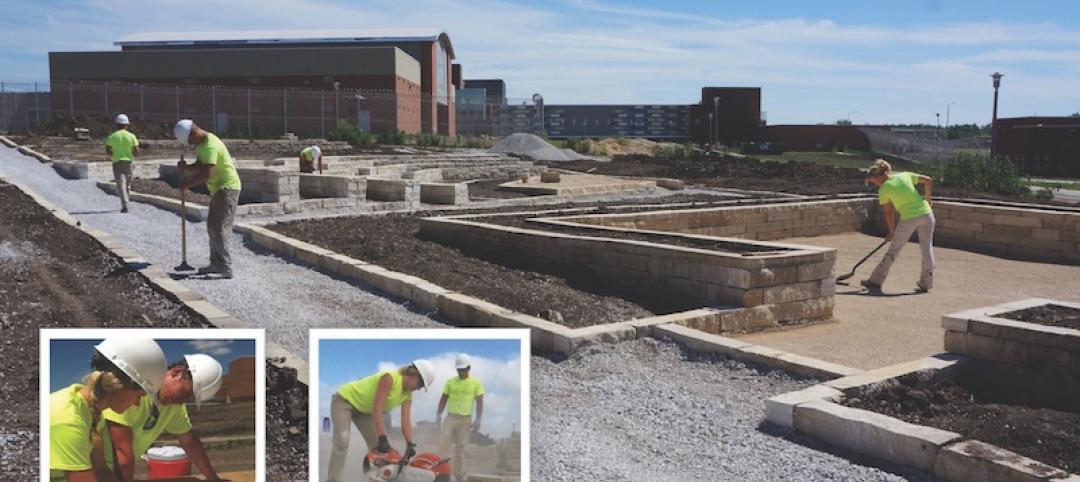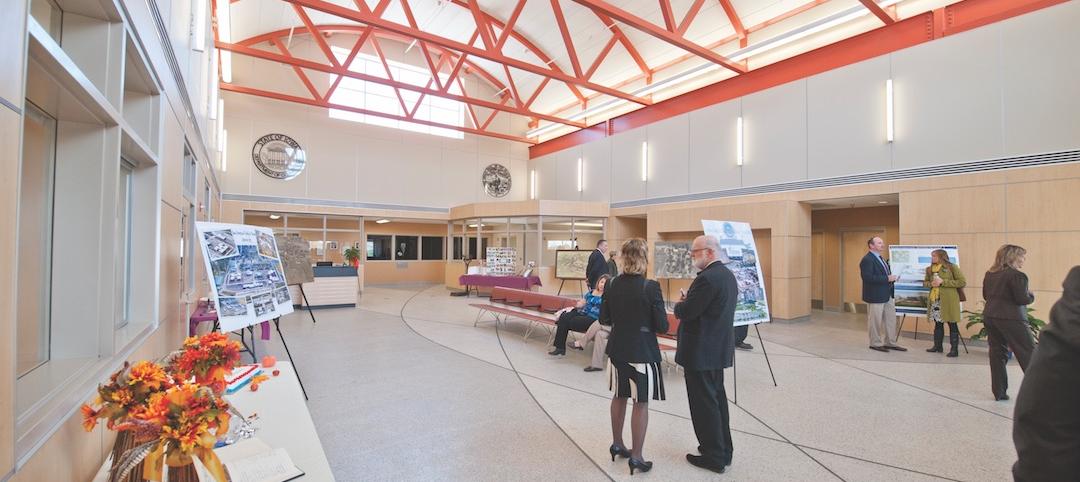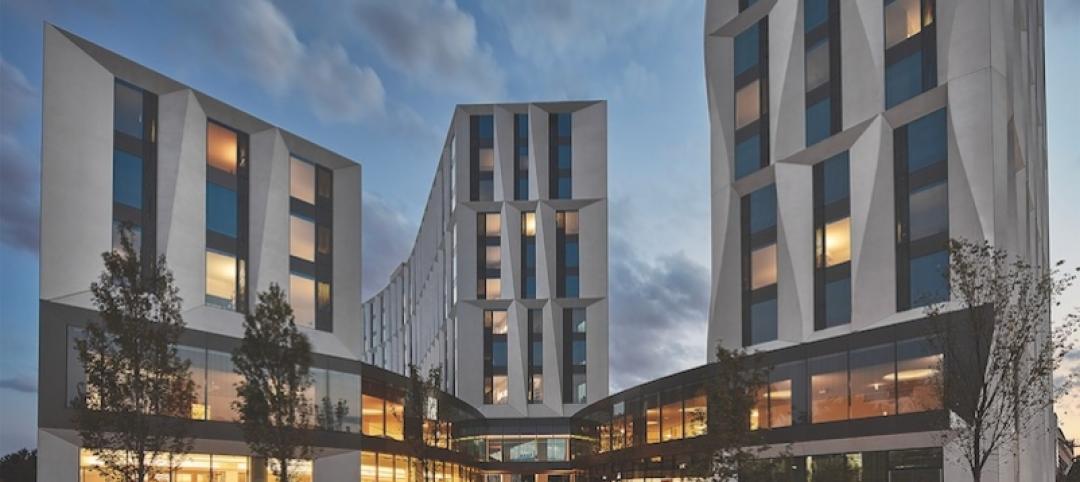The design of the Cleveland Clinic Taussig Cancer Center was developed with one main guiding principle: optimize patient treatment and provide multidisciplinary care for them under one roof. The new 390,220-sf facility condensed the cancer services into one efficient building while improving the overall treatment process for both the patients and their families.
The healthcare facility’s project team adopted the Cleveland Clinic’s Owner-Controlled Team Project Delivery Method (OCTPD) to complete the project on time and under budget. OCTPD is Cleveland Clinic’s practice model of project delivery where the owner provides the knowledge and leadership to lead a team of industry experts to define and deliver a project by maximizing the benefits of coordinated teamwork.
The resulting seven-story, patient-first facility includes 126 exam rooms, 98 infusion bays, diagnostic imaging and genetics/genomics testing, dedicated areas for clinical trials, and 176 physician offices with support and conference areas.
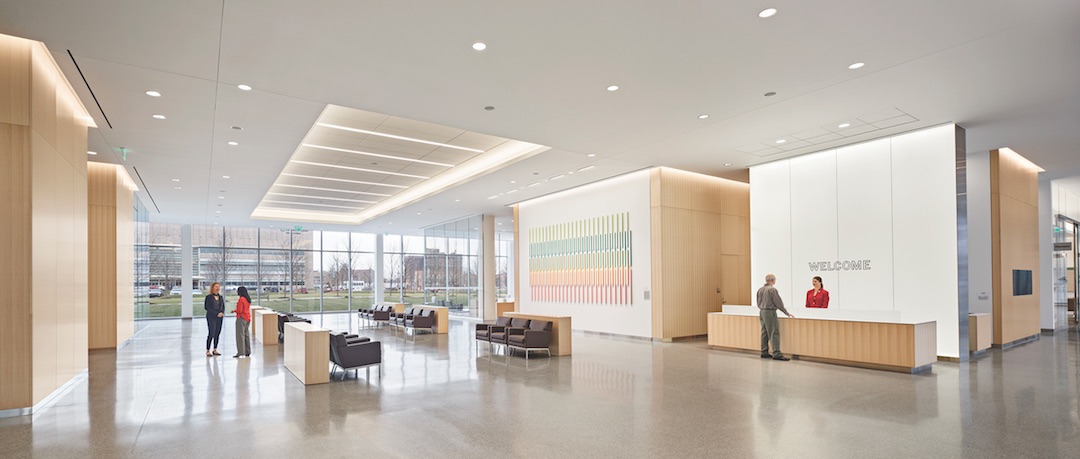 Robert Benson Photography.
Robert Benson Photography.
Natural light pierces the building from every angle, but the project team determined it was especially important for patient treatment areas to form a connection to nature. In the lower level radiation oncology treatment floor, high ceilings were used to bring in more light to the lower level and a large skylight structure allows daylight to pour in from above. Floors two through four are tabbed for infusion treatment with exam rooms and infusion bays that are all aligned along the north elevation to provide exterior views across the landscaped campus spine. Infusion patients may be in treatment for up to six hours, so providing this connection to nature with wide-open views was especially important.
The first floor focuses on support services that include a private cancer hematology lab, a wellness center with reflexology and massage therapies, art and music therapy, a retail pharmacy, a boutique where patients can get assistance with wigs, prosthetics, and makeup, a resource center, and a meditation space. Administrative offices are located on floors five and six and also include bountiful natural light.
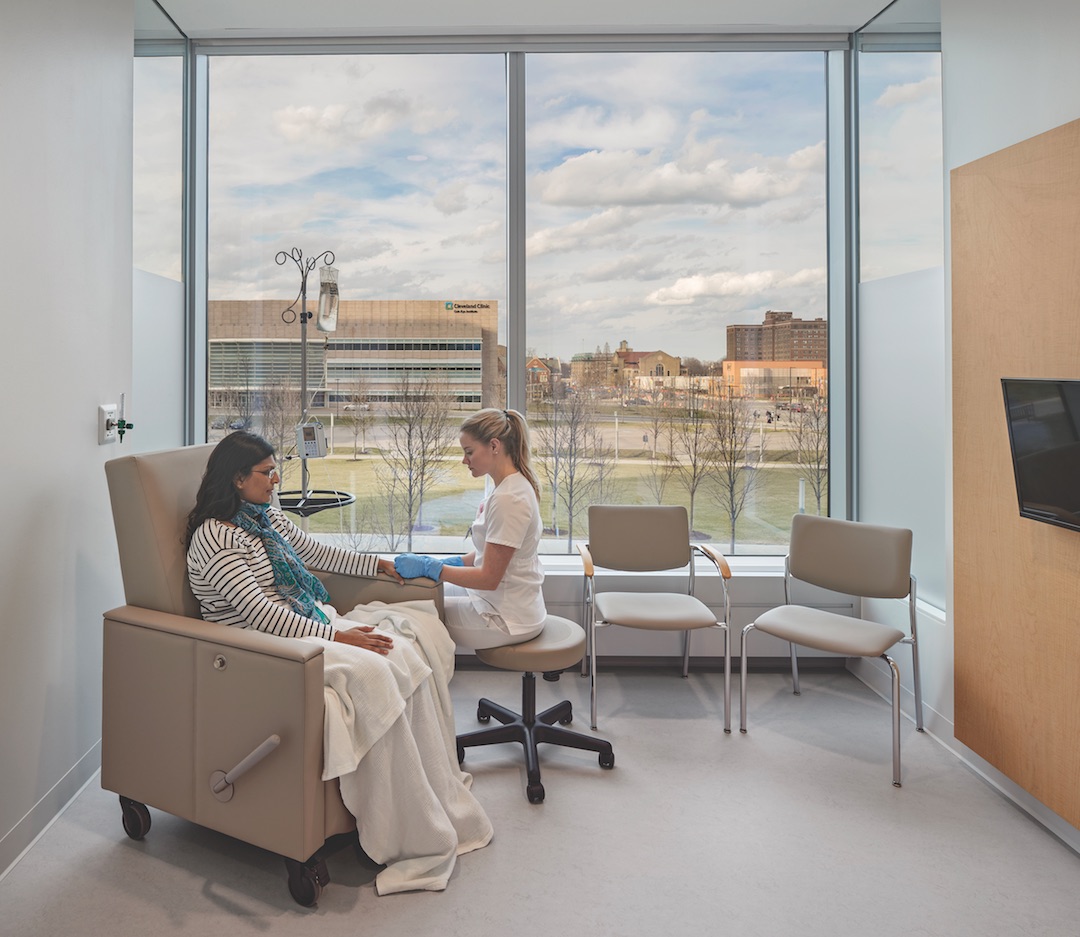 The infusion treatment exam rooms and infusion bays are aligned along the north elevation to provide exterior views across the landscaped campus spine. Robert Benson Photography.
The infusion treatment exam rooms and infusion bays are aligned along the north elevation to provide exterior views across the landscaped campus spine. Robert Benson Photography.
The steel-framed building uses composite floor slabs supported by a mat foundation. The building envelope consists of a unitized aluminum curtain wall with glass and granite panels. A 30-foot slab cantilevers out over the entire 350-foot span of the south façade and main entry.
Prefabrication methods were used to improve quality, enhance the schedule, and reduce the cost of the project. The MEP engineer set up a prefabrication warehouse a few miles from the project site where a significant portion of the above-ceiling MEP racks were built before being transferred to the site and installed.
BIM played a critical role in the project. A preliminary model was used during pre-construction to help inform the estimating effort as the design’s costs were being established. When design-assist contractors for mechanical, electrical, and fire protection were selected, they immediately began working with the design team to evaluate the early MEPFP models for cost and constructability. A common cloud-based server housed all the current models so any team member could see any other partner’s current model and perform “clash tests” between the models.
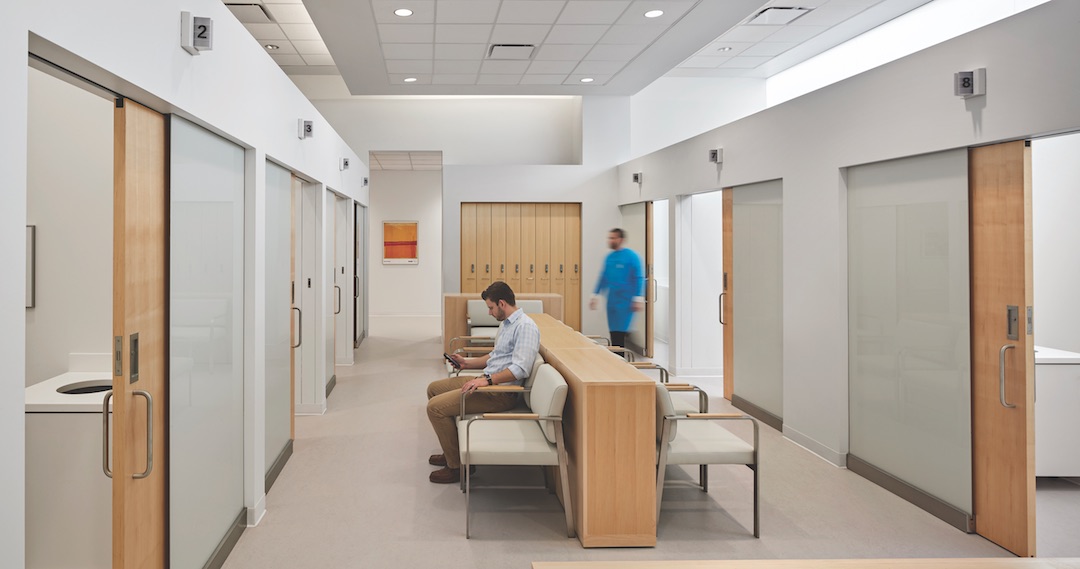 Changing room. Robert Benson Photography.
Changing room. Robert Benson Photography.
As each member of the team modeled their support system, they also modeled the hangers used to support them. This allowed the team to map the coordinates of the hangers and install them prior to the pouring of the concrete floors. Not only was the installation safer and faster, it also ensured 100% compliance with the approved model/design and eliminated any clashes in the field. Additionally, simple mockups created from tape and cardboard helped to ensure efficient room layout for users to provide the best care possible. These mockups helped save about $1.5 million from future user change requests.
Overall, the project team achieved substantial completion of the building on the same day identified 27 months earlier at ground breaking. The final construction cost resulted in an overall savings to the owner of $21 million, $17 million of which was directly attributed to the collaborative efforts of the design and construction team.
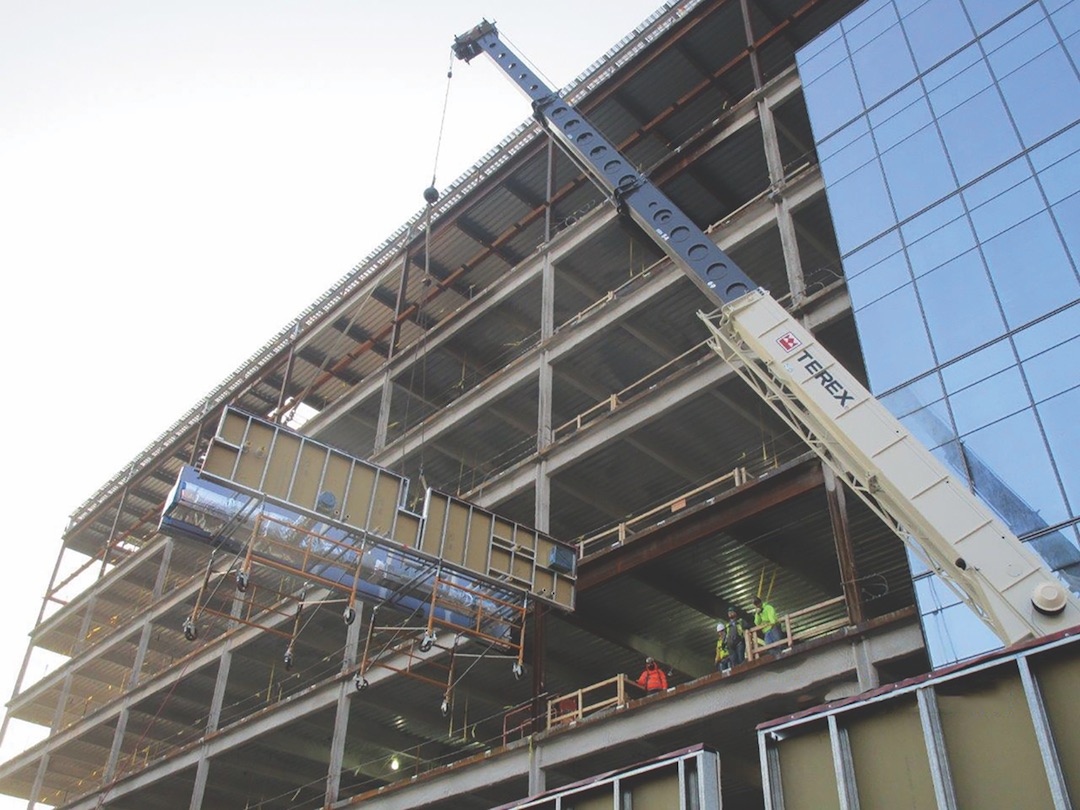 The team employed prefabrication techniques, including MEP trade racks, to improve quality, enhance the schedule, and reduce costs.
The team employed prefabrication techniques, including MEP trade racks, to improve quality, enhance the schedule, and reduce costs.
Building Team — Submitting firm, general contractor Turner Construction Company Owner Cleveland Clinic Architect William Rawn Associates Architect of record Stantec Structural engineer LeMessurier Consultants MEP engineer Bard, Rao + Athanas Consulting Engineers
General Information — Size 380,000 sf Construction cost $190 million Construction time September 2014 to June 2017 Delivery method CM at risk
Return to the 2018 Building Team Awards Landing Page
Related Stories
Building Team Awards | May 22, 2018
LA's game changer: Wilshire Grand Center
Silver Award: This billion-dollar mixed-use tower will alter the Los Angeles skyline in more ways.
Building Team Awards | May 21, 2018
Campus builder: Everett University Center at Washington State University
Silver Award: WSU kicks off its new branch campus with a high-tech innovation center designed to engage students, businesses, and the community.
Building Team Awards | May 21, 2018
Promise fulfilled: Park West, Texas A&M University
Silver Award: A P3-driven team completes this mega off-campus student housing complex ahead of its fast-track schedule.
Building Team Awards | May 18, 2018
Prognosis: Positive: Rutgers University-Camden Nursing and Science Building
Gold Award: Can a new nursing school breathe life into America’s third-poorest city?
Building Team Awards | May 16, 2018
Game, set, match: United States Tennis Association National Campus
Gold Award: With 100 courts and more than 260,000 sf of vertical construction, the USTA National Campus is a sanctuary for tennis enthusiasts.
Building Team Awards | May 15, 2018
High court, big impact: San Diego Central Courthouse
Gold Award: San Diego’s high-rise courthouse increases access to justice for citizens by consolidating 71 court departments.
Building Team Awards | May 14, 2018
Sweat equity marks landscaping effort
The design was grounded in therapeutic landscape and environmental psychology theory.
Building Team Awards | May 14, 2018
Rethinking prison design: Iowa Correctional Institution for Women
Platinum Award: Iowa's new women's correctional institution offers a revolutionary model for rehabilitating female inmates.
Building Team Awards | May 14, 2018
Dream delivered: McCormick Square Marriott Marquis and Wintrust Arena
Platinum Award: A daring hotel and sports development in Chicago’s South Loop aims to invigorate the city’s convention business.
Building Team Awards | Jun 14, 2017
17 projects earn BD+C's 2017 Building Team Awards
Of the 17 projects, one received a Platinum Award, six received Gold Awards, six received Silver Awards, two received Bronze Awards, and two received Honorable Mentions.


